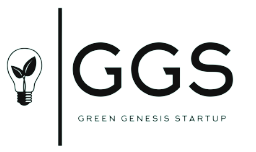
The effects of the transition to sustainability will be pervasive in the economy and society, with important transformations in the labor market. On the one hand, new opportunities will open up for emerging sectors that deal with the production of renewable technologies and sustainable products and services, which will be able to express a need for Green Jobs.
On the other hand, the production sectors responsible for releasing most of the emissions and exploiting most of the natural resources risk freeing part of the workforce in them engaged.
A report from the International Labor Organization (ILO, 2018) estimates that achieving the goal set by the Paris Agreement would result in the creation of 24 million jobs and the destruction of 6 million by 2030, with a net effect of the energy transition equal to 18 million positions at level global, with differentiated results according to the countries and production sectors.
The employment effects of the transition to renewable energies depend on a plurality of structural factors that characterize the local labor market. To promote the processes of mobility, reconversion and retraining of the workers concerned, it is essential to maximize the positive effects on growth and on the employment of energy and environmental policies on the labor market.
In this perspective, to seize the opportunities of the green economy it will be essential to know how to evaluate in advance which professional skills will be necessary to accompany and accelerate the transition process.
In this regard, education and vocational training systems will have to support workers and companies through the revision and integration of current training curricula, the definition of new standards, and the introduction of mechanisms for recognizing acquired qualifications and new ones professional roles.
Under the leadership of President von der Leyen, the Commission has, with the European Green Deal, presented an ambitious strategy to deliver on sustainability and the transformational changes needed across our economy and society. Sustainable development is a core principle of the European Union and delivering on the UN’s Sustainable Development Goals is a priority objective for the Union’s internal and external policies. By aligning action across a range of policy areas, including energy, environment, mobility and agriculture, the EU aims for a green transition that is just and inclusive. Like all sectors, education and training must take also action to respond to the climate emergency and planetary crisis – in terms of its own operations and, crucially, how it prepares learners for the future.
The European Education Area Communication, the European Green Deal3 and other key initiatives recognize the crucial role of education and training for the green transition. Learners of all ages need to be able to develop the knowledge, skills and attitudes to live more sustainably, change patterns of consumption and production, embrace healthier lifestyles and contribute – both individually and collectively – to the transformation of our societies. Achieving this requires a lifelong learning approach to learning for environmental sustainability with hands-on, engaging and action-based ways of learning which foster (i) knowledge, understanding and critical thinking (cognitive learning); (ii) practical skills development (applied learning); and (iii) empathy, solidarity and caring for nature (socioemotional learning). Interdisciplinary approaches are needed to help learners understand the inter-connectedness of economic, social and natural systems. In this context, the effort undertaken by our project becomes even more important. The Program examines the innovative strategies of companies that focus on the Green Economy, the skills that young people need to be able to enter the world of work, and practical activities that support young people in opening a green business.
